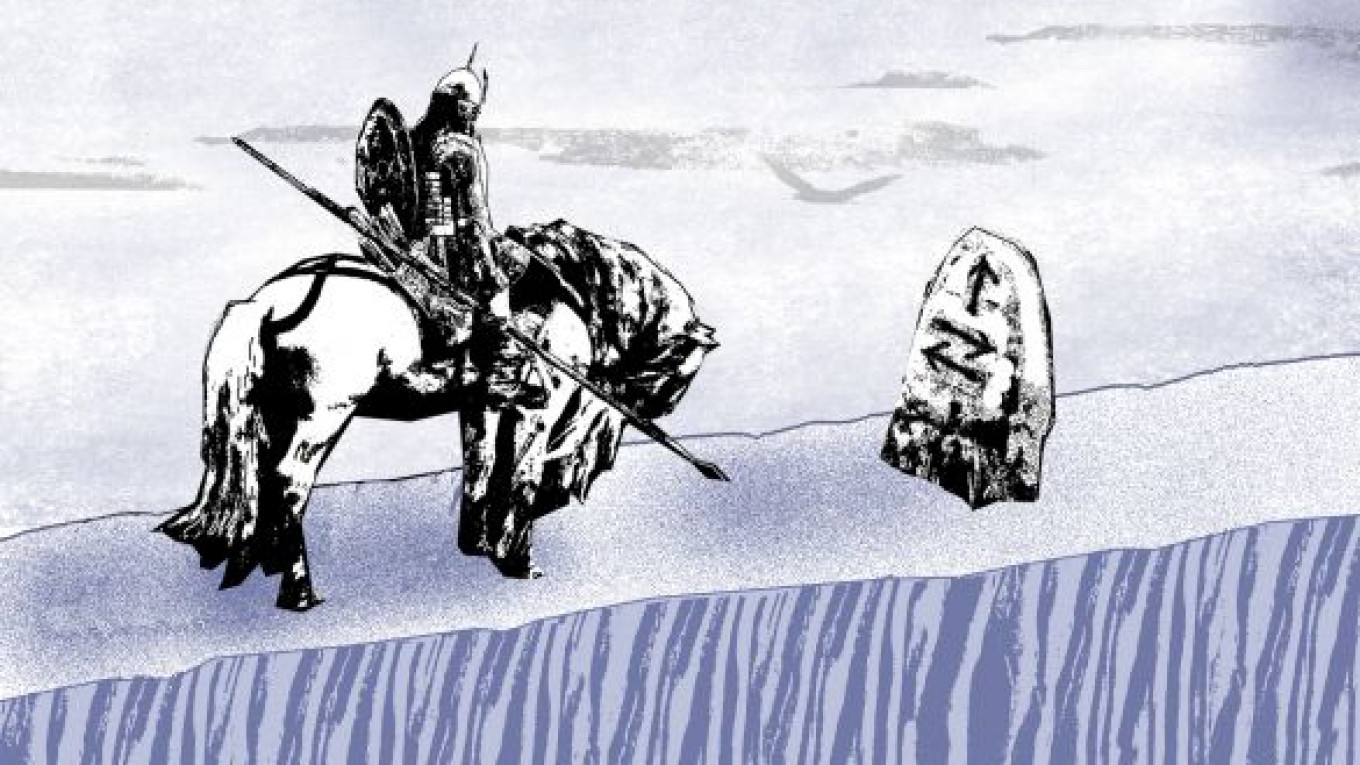In just six months, from the end of September to March, Russia was transformed. The state's gradual decomposition — its degenerate ethos of rent-seeking and appropriation of public goods — finally pushed Russians, especially its young post-Communist middle class, into the streets. Soviet-era deference to paternalistic leaders gave way to self-confidence and distrust of established authority.
Or did it?
Vladimir Putin and his regime, caught off guard by the protests in December and February, were on the verge of panic. But after the presidential election that returned Putin to the Kremlin, the protest wave rapidly subsided. Rallies shrank to one-tenth their previous size. With expectations of immediate success unmet, the romantic impulse wilted. It was clear what to do in confronting electoral fraud, but what to do later — after the defeat — was not. The protesters' leaders could formulate no new goals and slogans.
Moreover, between the parliamentary elections of last December and the presidential election in March, the authorities began to seize the initiative. Putin's placeholder, Dmitry Medvedev, proposed political reforms during the last weeks of his presidency and started meeting with representatives of opposition parties, which also had a demobilizing effect.
Of course, the reforms announced by the government were the simulated sort that have been a staple of Putin's rule. But even as the authorities try to dilute their own initiatives — including direct gubernatorial elections, the removal of barriers to party registration and the establishment of independent public television — they have provided new opportunities for political participation.
Up until recently, the authorities no doubt perceived the temporary decline in street activity as a victory. Courts hearing allegations of falsified election results ignored clear evidence of legal violations. To many, the protest movement had become defeated. It seemed that Russian society had become a dry peat bog, waiting for a spark to ignite it.
We saw that spark on May 6, on the eve of Putin's inauguration, when tens of thousands of protesters rallied in Moscow and clashed with police. As we enter the summer months, this spark could remain lit for a while — and perhaps gain force.
This bottom-up process is inestimably important to Russia's future. And Moscow is not the only example. In several Russian cities, the opposition won mayoral elections. In Astrakhan, where the opposition candidate lost because of widespread voting fraud, the scale of street protests grew tenfold, and the entire country has been stirred by the scandal. Nowadays, opposition leaders from Moscow and elsewhere travel to other cities and join the protests or become election observers.
That activity will need to continue. When asked in a recent interview about the fate of the Putin-Medvedev regime, Medvedev, now the prime minister, said: "It is now time to calm down because the tandem will be here for a long time." But while the tandem continues to see its main achievement as stability, what they now mean is the regime's ability to stay in power "for a long time."
To guarantee their understanding of stability, the tandem contrasts the continuous middle-class demonstrations with a wave of regime-orchestrated demonstrations. As a result, the country is now swollen with all sorts of phobias — against sexual minorities, against the "propaganda of sex" among young people, against critics of the Russian Orthodox Church and, as always, against the West.
It is difficult to predict the fate of such a blinkered regime. What we can say for sure is that only a democratic Russia will be able to survive within the country's current borders. The alternative is collapse. Fortunately, the awakening of Russian society, the geographic broadening of political opposition, and the advent of a new generation unshackled by Soviet habits of mind and behavior has given the country an opportunity for genuine democratic reform that 12 years of Putinism had seemed to bury.
But Russia will choose not only between Putinism and democracy. Trying to ensure stability, the regime is awakening forces that it will not be able to control. The nationalism and homophobia that Putin and Medvedev have mobilized against the liberal wave is more dangerous to them — and their plan to swap jobs with each other indefinitely — than the liberals and leftists are.
Russia can go down three paths: democracy, which would preserve the country and provide prosperity for its citizens; the dead end of Putinism; or an orgy of nationalist obscurantism. Either of the second two scenarios would increase dramatically the likelihood of Russia's eventual disintegration.
Georgy Satarov is director of Indem, a Moscow think tank. © Project Syndicate
A Message from The Moscow Times:
Dear readers,
We are facing unprecedented challenges. Russia's Prosecutor General's Office has designated The Moscow Times as an "undesirable" organization, criminalizing our work and putting our staff at risk of prosecution. This follows our earlier unjust labeling as a "foreign agent."
These actions are direct attempts to silence independent journalism in Russia. The authorities claim our work "discredits the decisions of the Russian leadership." We see things differently: we strive to provide accurate, unbiased reporting on Russia.
We, the journalists of The Moscow Times, refuse to be silenced. But to continue our work, we need your help.
Your support, no matter how small, makes a world of difference. If you can, please support us monthly starting from just $2. It's quick to set up, and every contribution makes a significant impact.
By supporting The Moscow Times, you're defending open, independent journalism in the face of repression. Thank you for standing with us.
Remind me later.






